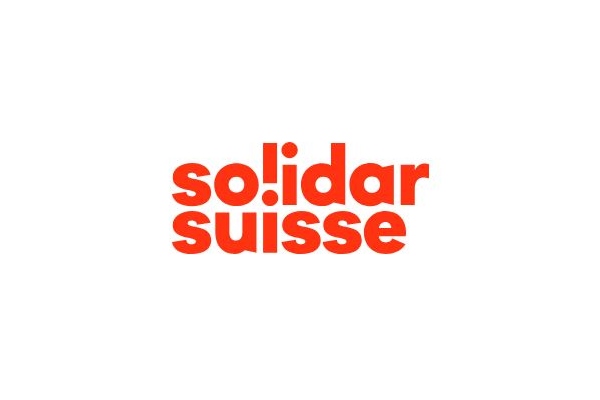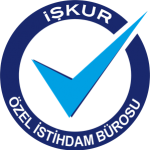TERMS OF REFERENCE
Final Project Evaluation
Program/Project Title: Hemaya: Multisectoral response to earthquake-affected communities in Northwest Syria
Project Duration: June 2024 – May 2025
Project Site: Azaz District: Azaz, Suran, Mare, and Akhtarin sub-districts in Northwest Syria
Budget for the Evaluation: 15’000’00 CHF
INTRODUCTION
More than two years after the devastating earthquake struck Turkey and Syria, the humanitarian needs in the region remain immense, especially for the most vulnerable populations who are facing compounded challenges in Syria. Humanitarian efforts are gradually slowing down, while the most vulnerable people continue to rely on external support.
The Multisectoral Response to the Earthquake-affected communities in NW Syria has three pillars: Income Generating Activities, Individual Shelter and Public Infrastructure Rehabilitation, and Child Protection. The project aims to address some of the most urgent needs, such as securing livelihoods, providing access to safe and dignified shelter, improving public infrastructure, and protecting children. It proposes to provide income-generating activities for those whose livelihoods have been affected by the earthquake, supporting the repair of damaged shelters for vulnerable host communities and internally displaced people, rehabilitating critical public infrastructure, and protecting children at risk.
PURPOSE AND OBJECTIVES
The purpose of this review is to assess the overall performance of the project and the achievement of the set objectives. The review should have a lens of cross-cutting issues such as gender and protection mainstreaming, disability inclusion, and AAP (Accountability to Affected Populations). Furthermore, it will assess the partnership structure and finally provide recommendations, based on lessons learned, for future projects to support the most vulnerable people in Northwest Syria affected by the earthquake.
Guiding evaluation questions are:
- Relevance: Was the project intervention relevant and needs-oriented in the earthquake response situation in Northwest Syria?
- Was the assistance provided relevant and according to identified priorities in coordination with other actors and according to the actual given context?
- Was the assistance provided in line with sector priorities and general recommendations (e.g. clusters, authorities, etc.)?
- Effectiveness: To what extent did the project achieve its objectives and deliver on the planned results?
- Were the outcome goals achieved and to what extent?
- How is the participation, relevance, and quality of the assistance perceived by the beneficiaries and local stakeholders (mainly local authorities and other organizations)?
- Was the feedback from beneficiaries taken into account in the project implementation?
- Impact: To what extent has the project been or is likely to be able to strengthen the resilience of the most vulnerable people in Northwest Syria
- To what extent can the implemented activities create a lasting impact in the given context?
- Did the project activities improve the beneficiary’s situation (e.g., mental situation, livelihood situation)?
- Sustainability: To what extent did the project lead to sustainable results?
- Did the project lead to the sustainable development of the local partner organizations (localization concept)?
- Did the project attract attention, funding, or result in new partnerships for sustainability?
- Will staff recruited for the project continue working in humanitarian response for other organizations? Did project components attract further funding from the stakeholders (other INGOs, volunteer support, government, business)?
- How will skills, competencies, knowledge, and a partnership approach be leveraged in other activities? Are they transferrable to other projects or activities?
- Partnership: Was the partnership approach appropriate and relevant?
- Did the partnerships (Solidar-SARD) make use of synergies and complementarity?
- Did the partnership approach further the localization concept?
- Was the project structure/setup appropriate?
- Was communication effective among partners?
- Assess the essence of the partnership using the following inputs: financial support provided to the partners, reporting, accountability (including AAP), roles and responsibilities, frequency, and regularity of exchange.
The primary target audience of the evaluation is the Management of Solidar Suisse, SARD, and SARD teams in Northwest Syria and Turkey, and Solidar Suisse Headquarters.
METHODOLOGY AND TIME-FRAME
The consultant(s), in cooperation with Solidar Suisse HQ and the Turkey Team, will develop the final methodology for the evaluation, which will be included in the inception report. The methodology will have to combine both quantitative and qualitative tools and be used where possible in a participatory way. Suggested tools are:
- Literature review,
- Review and analysis of project monitoring data,
- Review of project documentation and procedures,
- Observations,
- Key informant interviews,
- Focus Group Discussions with beneficiaries and other stakeholders,
- Surveys to be conducted with the project beneficiaries,
- Discussions and interviews with the project teams and relevant actors (e.g. local authorities, community members, IDPs, other organizations, project staff, etc.)
The work will be concluded in the calendar below, broken down as follows:
| 1 | Preparation (preparation methodology, work plan, inception report) |
| 2 | Briefings / Debriefings |
| 10 | Fieldwork (NW Syria – incl. travels) |
| 5 | Report writing & data analysis |
| 18 | Total |
The proposed schedule is as follows:
| 16 May | Briefing |
| 20 May | Preparation (incl. inception report) |
| 22 May-4 June | Field Work |
| 12 June | Debriefing Workshop (online) |
| 16-20 June | Report writing & data analysis |
| 23 June | Submission of draft evaluation report |
| 25 June | Reception of feedback by Solidar Suisse |
| 30 June | Incorporation of feedback |
| 2 July | Submission of the final evaluation report, including all annexes |
RESPONSIBILITY AND REPORTING LINES
The consultant(s) will be supported by Solidar Suisse and the partner’s teams. The consultant(s) will work closely in collaboration with staff members of the Solidar Suisse Turkey and Syria team. The reports will be sent to Solidar representatives in Turkey.
DELIVERABLES/OUTPUTS
I. The inception report will contain the following elements (max 7 pages):
- Evaluation matrix listing out the subsidiary evaluation questions,
- Methodology,
- Sampling plan,
- Risk mitigation measures related to field access, data collection and security,
- Draft data collection tools (survey forms, topic guides for focus groups, etc.),
- Draft work plan for fieldwork.
II. The consultant(s) will organize a debriefing workshop (online) to validate and discuss the provisional findings with Solidar Suisse HQ and the relevant team in Turkey.
III. The evaluation report will be submitted in English. It shall contain no more than 15 pages (excluding annexes). The report shall contain a general summary and sections covering methodology, analysis, and findings. Recommendations must be concrete and applicable. The report must answer the final evaluation questions that are stated in, but not limited to, this TOR / the Inception report.
a. Table of contents of the evaluation report:
- Cover page
- Acknowledgement page (optional)
- Content, map of the area, and list of acronyms
- Executive summary with the main findings
- Methodology
- General report, including analysis and findings
- Recommendations
- List of resources/bibliography
- Timetable of the consultant with references to stakeholders spoken to (can be an annex).
PROFILE OF THE CONSULTANT/CONSULTANCY TEAM
- Demonstrated experience in evaluating humanitarian projects,
- Knowledge of the Humanitarian System and respective coordination structures,
- Excellent thematic knowledge in cash-based assistance, shelter, and child protection,
- Up-to-date knowledge of current (participatory) evaluation tools and methods and proven experience in the use of these tools
- Fluency in English and Arabic language,
- Strong analytical skills,
- Ability to work effectively and under stress,
- Excellent writing skills in English and the ability to write concise, yet comprehensive reports,
- Has the necessary permits to work in NW Syria. Note that Solidar Suisse will not be able to facilitate getting permission,
- Act following regulations such as KVKK & GDPR to ensure data protection,
- Ability to meet deadlines.
APPLICATION PROCESS
Bids must include the following:
- Technical proposal including an outline of the evaluation framework and methods, comments on the TOR, proposed time frame, and expected work plan.
- Financial proposal including daily consultancy fee, a breakdown of costs of travel (incl. travel in Northwest Syria), any taxes or fees, accommodation, per diems, any other costs for workshops, FGDs,
- CV(s) with qualifications, experience, contact details, and evidence of past evaluations for the evaluator,
- 2 References of previous clients for evaluations, including the contact details and relationship to the consultant.
The evaluation can be conducted by either an individual consultant or a consultant team.
Submit complete bids by email to: [email protected]
Application deadline: 13 May 2025
Note that due to the urgency of the exercise, applications will be evaluated on a rolling basis.
Only short-listed candidates will be contacted.


